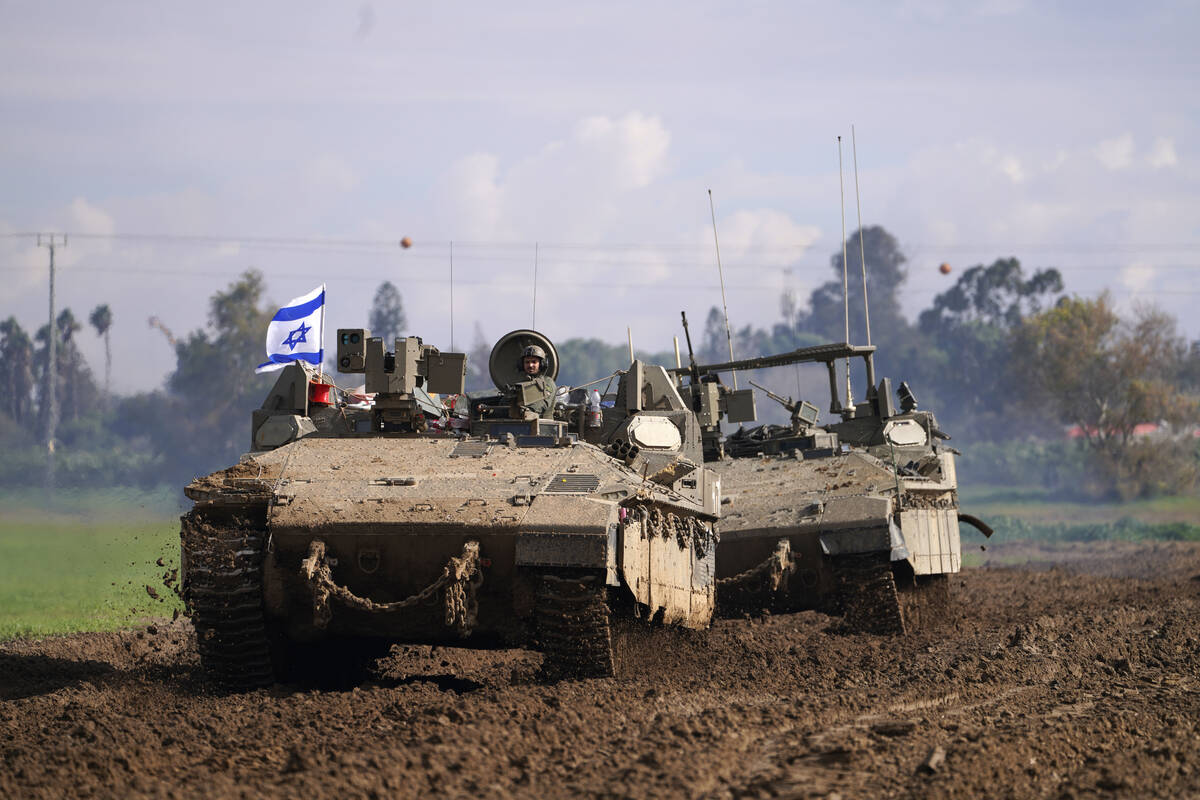Hamas studying Gaza cease-fire proposal, but appears to rule out key provisions

BEIRUT — Hamas officials said Friday that the terrorist group is studying a proposed cease-fire deal that would include prolonged pauses in fighting in Gaza and swaps of Israeli hostages for Palestinian prisoners, but the terrorists appeared to rule out some key components.
Hamas remains committed to its initial demands for a permanent cease-fire, the terrorist group’s top political leader Ismail Haniyeh and a senior Beirut-based official, Osama Hamdan, said. Hamdan also said the terrorist group seeks the release of thousands of Palestinian prisoners being held for acts related to the conflict with Israel, including those serving life sentences.
He mentioned two by name, including Marwan Barghouti, a popular Palestinian uprising leader seen as a unifying figure. Hamdan’s comments on the prisoners were the most detailed demands yet raised by the group in public.
The insistence on large-scale prisoner releases and an end to the fighting in Gaza put the terrorist group at odds with the multistage proposal that officials from Egypt, Israel, Qatar and the United States put forth this week. That proposal does not include a permanent cease-fire.
After days of expressing optimism over progress toward a deal, mediators were still working to close wide gaps between Israel and Hamas terrorists.
Secretary of State Antony Blinken planned to fly to the region Sunday to help push the efforts, making stops in Saudi Arabia, Egypt, Qatar, Israel and the West Bank, the State Department said.
Haniyeh said in a statement Friday that negotiations must “completely end” the Israeli offensive in Gaza and bring the withdrawal of Israeli forces — demands that Israel has rejected.
Israeli leaders have said they will keep fighting until Hamas, which has ruled Gaza since 2007, is crushed, even while agreeing to long pauses that are accompanied by the release of hostages.
Hamas and other terrorists killed 1,200 people and captured about 250 hostages during the deadly Oct. 7 attack on southern Israel that triggered the war. They continue to hold dozens of captives, after more than 100 were released during a one-week truce in November. Those releases were in exchange for 240 Palestinian prisoners.
Since Israel’s offensive began, more than 27,000 Palestinians have been killed, according to the Hamas-run Health Ministry in Gaza.
Hamdan also said Hamas wants to free Palestinian prisoners of all factions — not just those affiliated with the terrorist group. In addition to Barghouti, he named Ahmed Saadat, the head of the Popular Front for the Liberation of Palestine, a small PLO faction.
The prisoner release is a “national cause, not only for Hamas,” he said.
Both Barghouti and Saadat were convicted of involvement in fatal attacks during the second Palestinian uprising against Israel’s occupation a generation ago.
Alluding to additional points of dispute, Hamdan also said that Israel is carving out a buffer zone on the Gaza side of the border.
Israel has not acknowledged such plans officially, but satellite photos show new demolition in a half-mile-wide swath within Gaza along the border with Israel.
Another Hamas official said Friday that the terrorist group would give its reply on the cease-fire proposal “very soon” and ask for several unspecified changes. He refused to give any details on what they’re seeking or how many hostages would be released in return for how many prisoners.
As the war nears the four-month mark, fighting continued in the southern city of Khan Younis. The Israeli military said Friday that its efforts focused on fighters, weapons and infrastructure in the city, a key target of Israel’s ground offensive in recent weeks.
Qatar and Egypt have been serving as mediators between Israel and Hamas terrorists. A senior Egyptian official familiar with the discussions described the multistage proposal, which he said Hamas had sent positive signals about. The Egyptian official and the Hamas official spoke on condition of anonymity because the indirect talks are still ongoing.
The proposal, according to the Egyptian official, includes an initial cease-fire of six to eight weeks during which Hamas terrorists would release elderly hostages, women and children in return for hundreds of Palestinians jailed by Israel.
Throughout that phase, negotiations would continue on prolonging the cease-fire and releasing more prisoners and hostages.
Israel would allow the number of aid trucks entering Gaza to increase up to 300 daily — from a few dozen currently — and let displaced Gaza residents gradually return to their homes in the north, according to the proposal.
———
Magdy reported from Cairo. Associated Press writers Jack Jeffery in Cairo and Jamey Keaton in Geneva contributed to this report.